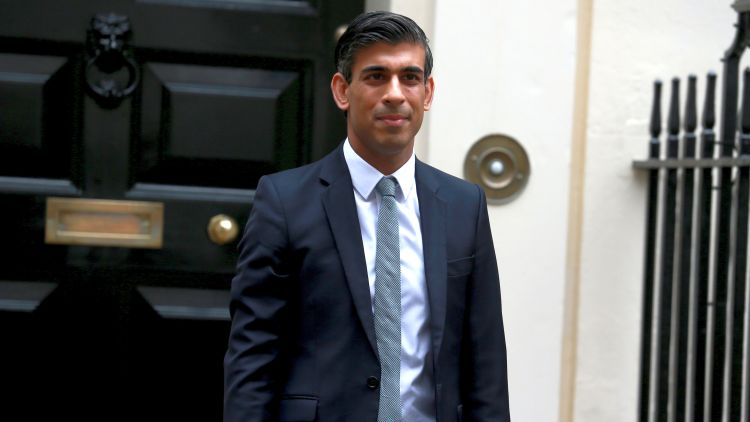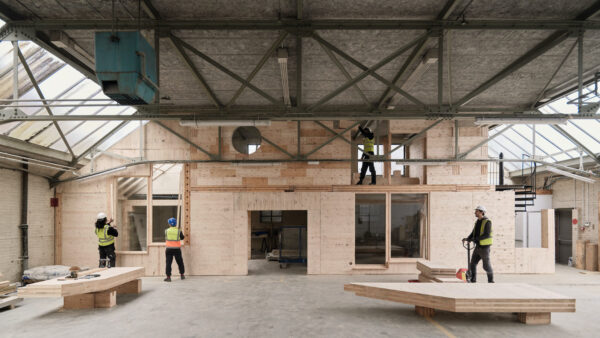
The Chartered Institute of Building (CIOB) has welcomed measures from chancellor Rishi Sunak to ease the cost of living crisis in his 2022 Spring Statement, but urged the government to introduce a long-term national retrofit strategy to drive down energy bills.
Among the measures announced by Sunak today (23 March) was a decision to reduce the VAT rate on home sustainability energy solutions including insulation, solar panels and heat pumps.
CIOB’s Eddie Tuttle, director of policy and external affairs, said: “CIOB understands that, given the current geopolitical issues, as well as the need to pursue a quick fix to the rapidly increasing cost of household bills, there was not a great deal included in the Chancellor’s Spring Statement that related directly to the construction industry. Government has clearly listened to sectoral calls for VAT cuts and we welcome Government’s commitment to reduce the VAT rate on home sustainable energy solutions to 0%. However, we feel that there is a missed opportunity to both address the need to improve the quality of housing across the board and help alleviate the reliance on carbon intensive energy systems.”
Tuttle said that while it was paramount the government addressed the cost of living crisis, there is a risk that it stalls on other commitments such as net zero.
He added: “With fuel prices soaring, the Chancellor must strike a balance between addressing consumer concerns whilst exploring other avenues to reduce carbon emissions and the UK’s dependence on fossil fuels. We recommend that the government works with the construction industry to ensure that the reduced VAT for home sustainable energy solutions helps address whole home carbon emissions, as opposed to isolated measures. This is something we highlighted in the government’s Heat and Buildings Strategy, recommending government to utilise the expertise of the built environment to undertake a coordinated and long-term approach to decarbonise existing homes, instead of isolated activities and private market initiatives.”
Meanwhile, Tuttle reiterated the CIOB’s support for the National Retrofit Strategy proposed by the Construction Leadership Council (CLC). He called it an “essential step” in improving the energy efficiency of existing buildings.
Tuttle said: “The Strategy has been backed by CIOB and many other bodies within the built environment. This monumental task will require significant government intervention, private sector investment and, most importantly, long-term political will and cross-party commitment. CIOB would like to see the government allocate the remaining £5.3bn that was committed in its election manifesto for domestic energy efficiency improvements.
“In terms of the general funding proposed in the Spring Statement, we welcome additional measures to alleviate the pressure on businesses through a review of the apprenticeship levy, increased thresholds for National Insurance and Employment Allowance plus cuts to fuel duty. However, it is uncertain how long these measures will last and if there will be new changes come the Autumn Budget to adapt to the geopolitical situation.”
“The government should implement a long-term national retrofit strategy to improve the energy efficiency of homes in the UK.”
Mark Robinson, group chief executive of public sector procurement authority SCAPE, added: “We need to see increased funding to support a nationwide approach to domestic energy efficiency – something we are actively campaigning for alongside the UK Green Building Council. All eyes will therefore be turning to the prime minister’s national energy strategy for clear direction on how the government intends to address long-term cost pressures within the construction industry.”
Meanwhile, Clive Docwra, managing director of the property and construction consultancy McBains, criticised Sunak for offering “little direct help for the construction sector”.
“Training schemes could also have done with a boost right now – the most recent figures show the construction industry had 48,000 vacancies, the highest for 20 years.”
Docwra said: “Cutting VAT on energy-saving products like solar panels and home insulation will help lower energy bills for the consumer, but also support retrofitting work for the construction sector.
“The 5% cut in fuel duty will also be of some consolation to the industry, although we would have liked to have seen the NI increase paused, as this would have allowed firms to invest more to recover from the pandemic and increase staff wages to help cover inflationary pressures.
“Training schemes could also have done with a boost right now – the most recent figures show the construction industry had 48,000 vacancies, the highest for 20 years, as a result of an ageing workforce, EU workers leaving since Brexit, and bureaucratic apprenticeship schemes, but all we heard was that this will be tackled in the Autumn Budget.”











